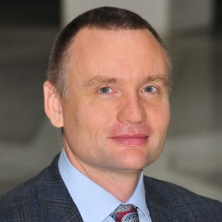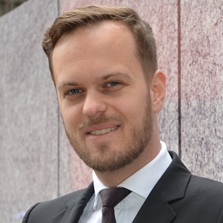
The International Renewable Energy Agency (IRENA) will be attending this year’s Eilat-Eilot Renewable and Clean Energy Conference. The delegation will participate in the event as part of the Agency’s mission to create a strategic plan for the Israeli government to help facilitate the deployment and proliferation of renewable energy in Israel. IRENA, based in Abu Dhabi, is the largest intergovernmental organization to promote the widespread adoption of renewable energy. The arrival of the globally recognized green powerhouse to the conference is a major boost for the Israeli clean energy sector.
Delegation
Dolf Gielen
Director
IRENA Innovation and Technology Centre
Germany

LONDON: Business can and must be at the forefront of technical and policy innovation to tackle climate change, says Dolf Gielen, Head of Innovation, International Renewable Energy Agency (IRENA), in an exclusive Climate TV interview during IRENA’s Innovation Week in Bonn earlier this month.
Innovative technology already exists today to help companies meet their 100% renewable electricity goals, according to the Head of Innovation. “There are companies that are more in the service sector, like supermarkets, where it’s clear that rooftop solar photovoltaic can have a very important role,” he underlines, “especially if combined with energy efficiency and perhaps even some forms of energy storage – for example also cold storage, because there’s a lot of refrigeration demand.”
“A different story is the energy-intensive companies, like cement production, iron, steel, petrochemical. These are sectors where renewable electricity can play a role, but you also need to find a solution for the thermal energy demand, and we think that bioenergy there and bio-refinery concept can play a more important role.”
Following the plan drawn up in the historic Paris Agreement, business must act now to reach net zero emissions over the next half century. The role of technical innovation in this scenario is crucial, says Dolf Gielen, since the energy markets are going through a significant period of change – which can create huge business opportunities.
“The most prominent example is the electricity market”, he says. “You see that electricity prices have changed dramatically. There are now more and more periods of excess of renewable electricity available, where electricity is available for free, or people are even paid to use that electricity. That’s of course a great business opportunity.
“But the challenge is to find that specific application where you get most value out of that surplus of electricity. And on the other hand, there is now periods of electricity scarcity, when prices go up. So, if you have some kind of storage solution, or some type of demand-response capacity to deal with that scarcity, that’s a great business opportunity.”
GOING 100% RENEWABLE
Forward-thinking businesses are already reaping the benefits of the transition toward a low carbon economy. RE100, convened by The Climate Group in partnership with CDP, is an ambitious global initiative to engage, support and showcase influential companies committed to using 100% renewable power.
“The cliché is that industry can’t do anything because they need cheap energy and you should just leave it to the market,” says Dolf Gielen. “But industry is also the largest consumer of energy, and therefore it has a great opportunity to influence how that sector develops. And in that sense RE100 is really key.
“It’s the companies that everybody knows, the big companies, showing that it is possible to move to 100% renewables, and that has of course a great function as an example for all the others. If these companies can do it, then why not everyone?”
Business and government must collaborate to unlock the trillions of dollars of investment needed for the transition to a net zero emissions economy. Policy support for this shift is key, and innovative solutions can accelerate progress.
The Climate Group’s States & Regions Alliance has played a vital role in shaping the Paris Agreement, showcasing the importance of sub-national governments in driving bold climate action that makes sense for both businesses and citizens.
ROLE OF INNOVATION
“What is clear from the discussion so far is that we see very rapid technological innovation, but we can almost take that for granted,” says Dolf Gielen, commenting the first day of IRENA’s Innovation Week. “While on the side of the market design, policy design, and business models – that’s probably where a stronger push would be warranted and that’s also where the great progress can be achieved and where the business opportunities are.
“The second outcome is that it’s clear that the power sector is the one where we will see more change in the coming years, and it’s going to be very interesting how that will evolve in different markets – probably we are going to see a diversity of solutions and pathways , and that will create fantastic new business opportunities.”
Leading businesses, investors and policymakers will convene at the end of the month in London for the Business & Climate Summit – the first big event post-Paris to implement what was agreed last December – and work together to accelerate the transition to a low carbon economy.
This year must be the turning point to implement the strategies that will help keep global temperature rise under the 2 degrees Celsius threshold – a pathway that is good for business, good for growth and good for the environment.
The Business & Climate Summit, on June 28-29, 2016 in London, will be critical to build the partnerships needed to scale up and accelerate this inevitable transition toward a more prosperous world.
Programme Officer
International Renewable Energy Agency (IRENA)

Dennis Volk advises IRENA member states and their governance decision makers in the design and implementation of enabling environments for the development and integration of renewable resources into power systems. His main focus areas are institutional design choices and techno-economic governance frameworks which ensure the reliable, affordable and sustainable development and operations of power systems at the interface between existing infrastructures, technology innovation and deployment. His advisory work, strategically summarised under the umbrella of the IRENA Regulatory Empowerment Project, responds to needs expressed by IRENA member states and cuts across several regional programmes in Africa, America and South-East Asia. Dennis' advisory work builds upon his 10 years of experience in national and international power system governance, including for market liberalisation and renewables development and integration. As a former electricity analyst with the German federal energy regulator ('Bundesnetzagentur') he understands the various practical challenges of framework design and implementation in all relevant detail, a set of experience which he combines with global knowledge on energy markets and power systems through his work for the International Energy Agency (IEA). He is contributor to various decision making processes and author of various targeted papers.